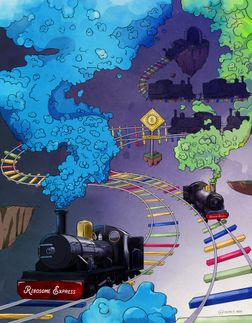Researchers design first artificial ribosome
Advertisement
Researchers at the University of Illinois at Chicago and Northwestern University have engineered a tethered ribosome that works nearly as well as the authentic cellular component, or organelle, that produces all the proteins and enzymes within the cell. The engineered ribosome may enable the production of new drugs and next-generation biomaterials and lead to a better understanding of how ribosomes function.
The artificial ribosome (Ribo-T), was created in the laboratories of Alexander Mankin, director of the UIC College of Pharmacy's Center for Biomolecular Sciences, and Northwestern University Michael Jewett, assistant professor of chemical and biological engineering. The human-made ribosome may be able to be manipulated in the laboratory to do things natural ribosomes cannot do.
When the cell makes a protein, mRNA (messenger RNA) is copied from DNA. The ribosomes' two subunits, unite on mRNA to form the functional unit that assembles the protein. Once the protein molecule is complete, the ribosome subunits separate from each other.
The researchers describe the design and properties of Ribo-T, a ribosome with subunits that will not separate. Ribo-T may be able to be tuned to produce unique and functional polymers.
"What we were ultimately able to do was show that by creating an engineered ribosome where the ribosomal RNA is shared between the two subunits and linked by these small tethers, we could actually create a dual translation system," Jewett said.
Not only did Ribo-T make proteins in a test-tube, it was able to make enough protein in bacterial cells that lacked natural ribosomes to keep the bacteria alive.
"This is an exciting tool to explore ribosomal functions by experimenting with the most critical parts of the protein synthesis machine, which previously were 'untouchable,'" Mankin added.























































